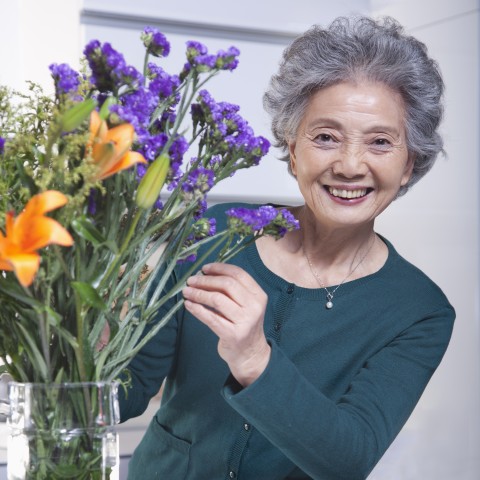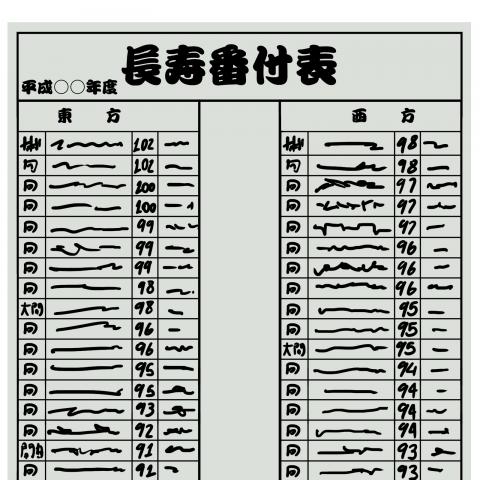Have you ever wondered “How are the elderly treated in Japan?”
Each year, the Japanese population celebrates and honors the elderly people in Japan for their contributions to society. The aged are regarded with much respect, and Respect for the Aged Day is a special occasion on which to really go all out and show this admiration.
In this article, you’ll learn all about the Respect for the Aged Day meaning, and more facts about the elderly people in Japan. Learning about this holiday and what it looks like in Japanese society will go a long way toward helping you understand the culture of Japan.
At JapanesePod101.com, we hope to make every aspect of your learning journey both fun and informative! So let’s get started.
1. What is Respect for the Aged Day?
Essentially, the Respect for the Aged Day meaning has to do with respecting one’s elders.
Respect for the Aged Day, Tokyo and all over Japan, is when Japanese people convey feelings of gratitude, respect, and good wishes toward the elderly population. Be it grandparents, parents, or elderly neighbors, the Japanese recognize the contributions that the aged have made for society to make it what it is today.
While there are several theories about this holiday’s origins, many people think it began in a rural village in the Hyōgo Prefecture in 1947. However, until 1964, this holiday was known as としよりのひ (toshiyori no hi), or “Old Folks’ Day.”
2. Respect for the Aged Day Date
Each year in Japan, Respect for the Aged Day is observed on the third Monday of September. For your convenience, here’s a list of this holiday’s date for the next ten years.
- 2019: September 16
- 2020: September 21
- 2021: September 20
- 2022: September 19
- 2023: September 18
- 2024: September 16
- 2025: September 15
- 2026: September 21
- 2027: September 20
- 2028: September 18
3. How to Celebrate Respect for the Aged Day
Comparatively speaking, this holiday is a modern one. Therefore, Respect for the Aged Day traditions are few, though there are a few common Respect for the Aged Day activities that we’ll cover here.
The day before, the Ministry of Health, Labor, and Welfare finds out how many people are over 100 years of age. Local municipalities often give gifts or souvenirs to elderly people who are celebrating a milestone birthday that year, such as Sanju (which is when they turn 80), or Sotsuju (which is when they turn 90). Those turning 100 years old or older receive a visit from the city or town mayor. They’re then congratulated and presented with a congratulatory gift.
On Respect for the Aged Day, and the days surrounding it, the elderly gather together in public facilities, such as community centers, to watch entertainment—such as choir and dance performances—alongside the participants and local residents. Sometimes the elderly also receive souvenirs such as red rice, Japanese sweets, and magnifying glasses.
Kindergartens and nurseries invite grandparents to see their grandchildren, and elementary school students write letters of thanks to their grandparents. This day is a good opportunity for different generations to strengthen their bonds.
Naturally, households with elderly family members convey their gratitude on Respect for the Aged Day, but families who live apart get involved as well. Often, this involves not only saying thank you, but also giving gifts. Meals, flowers, handmade crafts by the grandchildren, and photos of the grandchildren, are high on the list of popular gifts.
4. A Declining Population
Japan currently faces the prospect of a declining population, and this is a potential situation that could result in profound economic and social impacts.
Japan’s population is rapidly aging, which means that the number of people over 65 is rapidly increasing. Some people also call this phenomenon the “graying” of the population.
There are a few major factors behind this trend:
- An increasing number of retiring baby boomers
- Gains in longevity
- Decreasing fertility
To combat this, the Japanese government has implemented a series of plans, beginning in 1995, with the goal of improving conditions for child-rearing.
5. Useful Vocabulary for Respect for the Aged Day
Here’s some vocabulary you need to know for Respect for the Aged Day in Japan!
- プレゼント (プレゼント) — present
- 孫 (まご) — grandchild
- 米寿 (べいじゅ) — 88th birthday
- 敬老の日 (けいろうのひ) — Respect-for-the-Aged Day
- 祝う (いわう) — celebrate
- 高齢者 (こうれいしゃ) — senior citizen
- 祖父母 (そふぼ) — grandparents
- 長寿 (ちょうじゅ) — long life
- お年寄り (おとしより) — elderly person
- 9月の第3月曜日 (くがつの だいさんげつようび) — the third Monday in September
- 長寿番付 (ちょうじゅばんづけ) — longevity ranking
- 白寿 (はくじゅ) — 99th birthday
- 卒寿 (そつじゅ) — 90th birthday
- 傘寿 (さんじゅ) — 80th birthday
- 喜寿 (きじゅ) — 77th birthday
To hear each of these vocabulary words pronounced, check out our Respect for the Aged Day vocabulary list!
How JapanesePod101 Can Help You Understand Japanese Culture
We hope you enjoyed learning about Respect for the Aged Day with us! Does your country have a holiday to celebrate or show respect to the aged and eldelry? Let us know in the comments!
To continue learning about Japanese culture and the language, explore JapanesePod101.com. We provide an array of fun and effective learning tools for every learner, at every level:
- Insightful blog posts on an array of cultural and language-related topics
- Free vocabulary lists covering a range of topics and themes
- Podcasts to improve your listening and pronunciation skills
- Mobile apps so you can learn Japanese anywhere, on your own time
- Much, much more!
If you’re interested in trying a one-on-one learning approach, be sure to upgrade to Premium Plus. Doing so will give you access to your own Japanese teacher who will help you create a learning plan based on your needs and goals. Yes, really!
Japanese isn’t an easy language to master, but know that your hard work and determination will pay off. You’ll be speaking, writing, and reading Japanese like a native before you know it, and JapanesePod101 will be here with you on each step of your language-learning journey!













